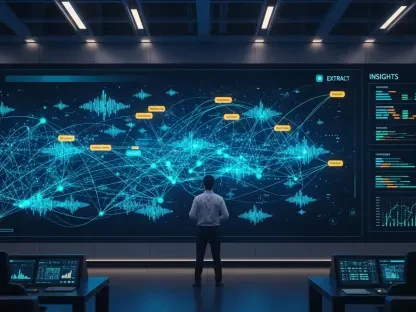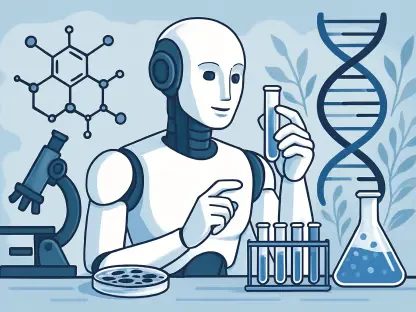Artificial Intelligence (AI) has emerged as a pivotal force, redefining the boundaries of human curiosity in the modern age. This technological marvel has heralded a new era in cognitive exploration, where machines emulate human-like thinking and foster innovation. As we stand at the brink of this technological transformation, the profound influence of AI on curiosity offers insights into its capabilities, limitations, and opportunities. In examining the dynamic interplay between AI and curiosity, we uncover how AI can either stifle or stimulate the intrinsic human drive for discovery.
Unveiling AI’s Role in Augmenting Human Cognition
AI’s core principles underscore its impactful role in enhancing cognitive functions. At its foundation, AI capitalizes on massive computational power to process data at unprecedented speeds, thereby unlocking vast amounts of knowledge for human exploration. It acts as an extension of human intelligence, enabling rapid analysis and fostering intellectual advancement across multiple domains. As a transformative tool, AI enhances our ability to understand complexities, broaden intellectual horizons, and accelerate technological progress.
In a broader context, AI’s role extends beyond mere data crunching; it integrates into diverse societal dimensions. Technological advancements, such as machine learning and natural language processing, have positioned AI as a pivotal entity in navigating vast information ecosystems. By bridging human intellect with computational precision, AI plays a crucial part in reshaping how curiosity manifests itself in various facets of life.
AI-Driven Data Analysis: Fueling New Curiosity Pathways
One prominent feature of AI is its unrivaled capacity for data analysis, uncovering insights that drive curiosity into uncharted territories. AI systems scrutinize extensive datasets, revealing patterns and correlations that often elude human comprehension. This capability not only enhances decision-making processes but also ignites curiosity by pointing to novel connections and possibilities previously unimaginable.
Moreover, as data becomes the lifeblood of innovation, AI-driven analytics pave the way for groundbreaking discoveries. By mining vast data troves, AI reveals underlying narratives, inspiring new questions and encouraging the pursuit of knowledge. This analytical prowess transforms AI into a pivotal enabler of curiosity, empowering individuals and organizations to delve deeper into their respective domains of interest.
Creativity and Idea Generation: Revolutionizing Thought
AI has progressed beyond mere computational tasks, evolving into a catalyst for creative thinking and idea generation. Innovative AI tools, such as generative AI models, push the boundaries of imagination by producing art, music, and literature, thus redefining creativity. By collaborating with AI, creators embark on journeys of exploration, wherein AI acts as a muse, sparking inspiration and challenging conventional wisdom.
In this creative symbiosis, AI augments human imaginative capabilities, offering diverse perspectives and innovative solutions. This transformative dynamic prompts intellectual curiosity, urging individuals and collectives to explore the edges of creative possibility, merging technology with artistry and expanding the scope of what can be achieved.
Recent Innovations Reshaping Curiosity
The realm of AI is continuously evolving, with recent innovations reshaping how curiosity flourishes. New techniques, such as reinforcement learning and neural networks, drive AI’s evolutionary trajectory, fostering deeper understanding and novel applications. These advancements prompt the development of more intuitive machines that mirror human-like reasoning and cognitive flexibility.
Additionally, AI’s adoption across multiple sectors has catalyzed a new wave of exploration and inquiry. These innovations, whether in healthcare, education, or scientific research, highlight AI’s ability to facilitate curiosity-driven innovation. The velocity at which AI is evolving ensures its enduring impact on curiosity and exploration, charting new courses for future advancements.
AI in Real-World Applications: Boosting Inquiry
AI is being harnessed across various industries to cultivate and enhance curiosity and inquiry. Notably, the educational sector employs AI-powered platforms to customize learning experiences, encouraging students to delve deeper into subjects of interest. These platforms offer personalized feedback and resources, transforming how curiosity is nurtured in learners.
Similarly, the research and innovation sectors leverage AI for predictive modeling and hypothesis testing, thus accelerating the scientific process. By refining research methodologies and enabling parallel exploration, AI propels inquiry beyond traditional limits. These real-world applications underscore AI’s transformative role in enhancing curiosity, providing unique avenues for discovery.
Overcoming Challenges: AI’s Role in Sustaining Curiosity
Despite its promising potential, AI faces challenges as a custodian of curiosity. Ethical concerns, such as algorithmic bias and data privacy, pose significant hurdles. These issues can hinder AI’s ability to foster genuine curiosity, necessitating conscientious oversight and regulatory measures to safeguard exploratory freedom.
Technical limitations also impede AI’s capacity to fully realize its potential in enhancing curiosity. Addressing these challenges requires nurturing a balanced synergy between AI capabilities and human introspection, ensuring ethical integrity while promoting an environment ripe for intellectual growth.
Future Prospects: AI’s Evolving Influence on Curiosity
Looking ahead, AI’s role in shaping curiosity is slated to undergo further evolution. With rapid technological breakthroughs on the horizon, AI is poised to integrate even more seamlessly into everyday cognitive processes. Anticipated advancements in quantum computing and deep learning promise to further revolutionize how AI complements human curiosity, facilitating exploration on an unprecedented scale.
These emerging technologies hold the potential to bridge existing gaps in AI-human collaboration, ultimately enhancing intellectual exploration and broadening the scope of inquiry across disciplines. The potential societal impacts of these developments warrant careful consideration, as they redefine the relationship between machines and human curiosity.
Synthesis: AI’s Dynamic Influence on Curiosity
The exploration of AI’s interplay with human curiosity reveals a dual role, where AI acts both as a collaborator and a provocateur of thought. The deployment of AI in cognitively enriching contexts has the power to ignite new forms of curiosity while addressing inherent challenges. AI has proven to be both a mirror reflecting collective advancements and a catalyst inspiring untapped potential.
This symbiotic relationship underscores AI’s capacity to propel the essence of wonder and inquiry, challenging assumptions and encouraging diverse perspectives. As technology continues to evolve, AI’s capacity to inspire and sustain curiosity remains pivotal, shaping the future of cognitive exploration and intellectual growth. In harnessing AI thoughtfully, society can reimagine the multifaceted journey of human discovery.









